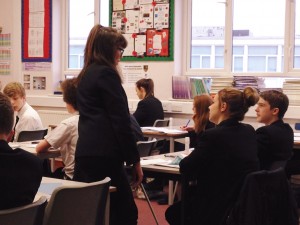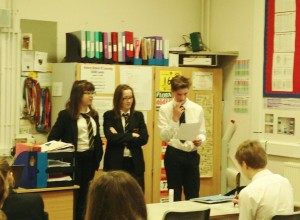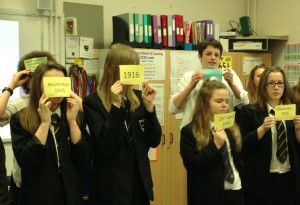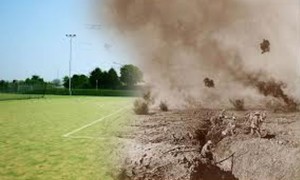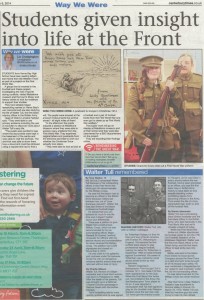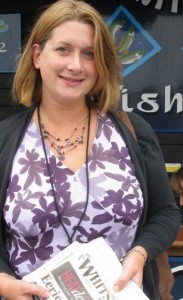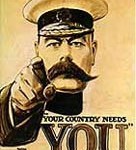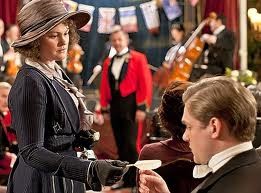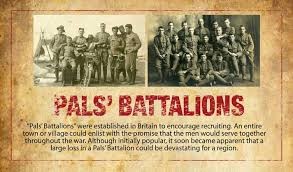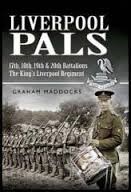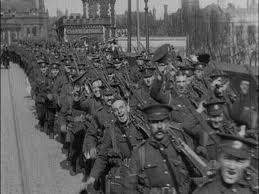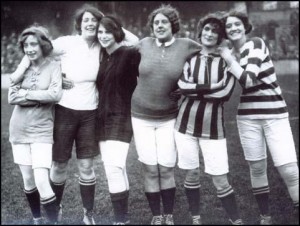On Tuesday the 11th March three of us from the Football and Peace project taught a lesson to the rest of our class using the research we had carried out on Walter Tull. It was exciting and fun for all of us and the class really enjoyed it. We started off the lesson like one of Miss Fairbard’s with the date title and learning objective. Then we did a bingo style quiz. You write 16 words on a board and then answer the clues to try and get 4 in a row to win a lolly. All the words were related to things we had already learnt about so should have been easy. Once we had finished and everyone had settled back down we watched a 6 minute long video on Walter Tull and his life asking them to make notes on key things e.g. his football career, him as a soldier and his early life. After they had finished the video we asked them to answer 8 questions. Some struggled with this but we know how we can improve this for future reference. Next we had planned a fun activity. Everyone had a card with a date or an event that corresponded with Walters’s life. The students had to match the correct date to the event. This was an enjoyable activity and got everyone moving around. Once I had checked that it was correct everyone sat back down. We had given them a copy of the full timeline so they had it all down in their books. Once they had glued the sheet into their book there was only 5 minutes left of the lesson so the final task was set for homework. This was to create a poster on Walters’s life and why we should remember him. Nobody really liked the fact that we set homework but it had to be done. Victoria Williams one of the students that we taught said “it was really good. I liked the fact that you got everyone involved. I don’t mind the fact you set homework as it keeps what we have learnt fresh in our minds.” Zara Wallace, one of the members from the club said “it was very good and I learnt a lot about Walter Tull. I also like the fact you set homework because you could get us to do some of our own research as well as everything that you taught us.” We found it an educational experience and great fun. I have always wanted to be a teacher so it was great experience to teach other students about what I had learnt from being part of this project. At the end of the lesson we found out we might be teaching the other groups further on in the year when they move on to the World War One topic. I can’t wait.
By Katie Ashenden
